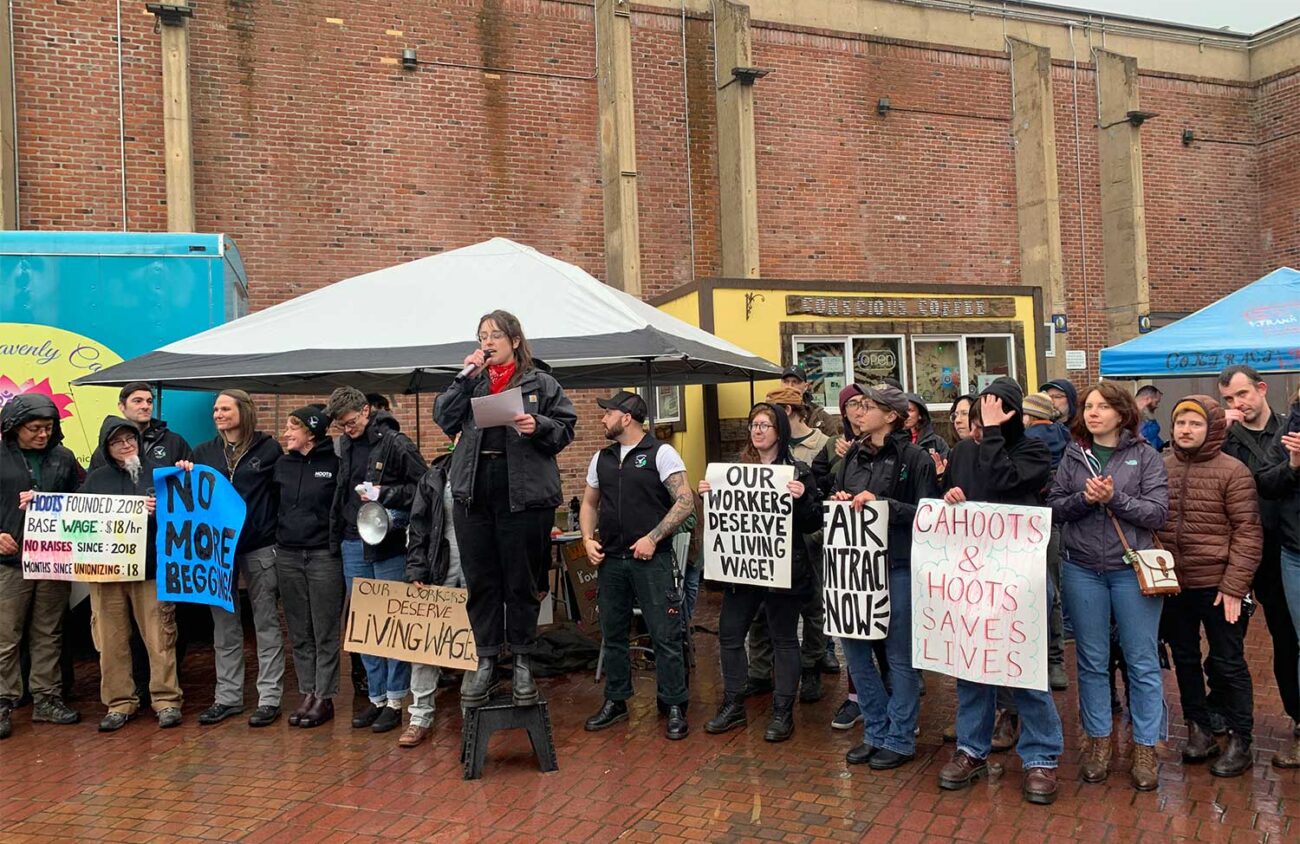On April 5, roughly 100 people rallied at Kesey Square to support the CAHOOTS and HOOTS union in their efforts to negotiate a new contract with the crisis intervention service they are part of, White Bird Clinic.
Launched in 1989, CAHOOTS, (Crisis Assistance Helping Out in the Streets), is a community based mobile crisis and medic response teamthat responds to mental health crises, substance abuse calls, suicide threats and any other traumatic events that would warrant a mental health professional.
CAHOOTS and HOOTS voted to unionize in 2022 and have been at the bargaining table with White Bird Clinic for over a year now The crisis intervention programs seek wage increases across the board as well as better benefits. CAHOOTS crisis worker Chelsea Swift says the crisis intervention program workers have had enough.
“Our jobs are predicated on knowing when to ask for help,” Swift says. “We knew that now is the time for us to ask for help from the community.”
The crisis intervention program has been used as a model across the country as a nonviolent alternative response to mental health-related crises. Portland Street Response, a mental health program formed in 2021, named CAHOOTS as an “inspiration” for its program.
“Despite all this attention and big talk, we have very little to show for it amongst ourselves. Our working conditions and compensation have not improved at all since then,” Swift says. She adds that some of these more recent programs pay their employees nearly double what CAHOOTS workers make.
The union is asking for living wages that reflect the professionals they work alongside — such as police officers, counselors and medics.
“Those jobs are known for having really good health insurance and great retirement benefits,” Swift says. “Unfortunately, because of White Bird’s history of being a volunteer organization, that’s not something that’s always been baked in the culture of White Bird.”
Many workers at both crisis intervention programs say they haven’t seen a wage raise since 2018.
Ashley Cakebread is a founding member of HOOTS, Helping Out Our Teens in Schools, which launched in 2018 and is responsible for handling school-related crises involving students. She says that her wage of $19.31 per hour hasn’t been increased in several years.
“There are no extra workers available to cover for us,” Cakebread says. “It is a hard decision to take a day off, even a vacation day, when we know not going to work means no food services will be available for an entire city.”
In addition to wage increases, the union wants to see good health care for all employees, retirement benefits and fully staffed teams.
White Bird Executive Director Jeremy Gates says that it is unfortunate that some people in CAHOOTS and HOOTS haven’t seen a wage increase, and he hopes that their future contract could remedy that.
Gates says the White Bird supports its employees’ right to organize and negotiate, but they are unfortunately not at the finish line in terms of reaching an agreement. “I know long-term the union’s organizing will be a positive change,” he says.
CAHOOTS and HOOTS will meet White Bird at the bargaining table again April 17.
“We all deserve better,” Swift says. “When we dare to struggle, we dare to win.”
